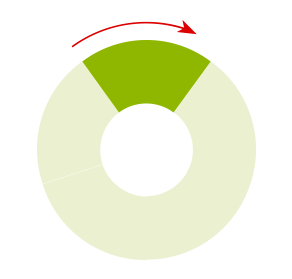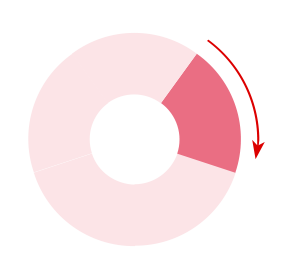Veolia supports producers of organic waste with facilities to collect and transform these materials into energy and into fertilizer. Not only an intelligent way to recover this waste, it also reduces the greenhouse gases that the waste produces if not processed.
Our waste is valuable
Clementines: a source of energy for the body – and for the planet? You would be forgiven for not knowing that their peel is a precious biowaste that can be transformed into a new resource such as green energy or fertilizer. With various regulations in France and Europe requiring producers of biowaste to implement special collection, sorting and treatment systems, Veolia supports them with a complete high-performance management solution.
Veolia has developed solutions to cover all types of biowaste, whether liquid or solid, packaged or unpackaged, etc., for customers in agribusiness, large retail and mass catering. From collection to recovery, the waste is managed throughout its life cycle before being transformed into green energy, organic compost or even animal feed. Veolia’s expertise also includes depackaging, the process of separating packaging and biowaste ready for their respective treatments.

Real-world examples
• In AUSTRALIA, the Woodlawn bioreactor handles 20% of Sydney’s putrescible waste. It captures the emissions from the waste and transforms them into enough green electricity to meet the needs of 30,000 homes.
• In FRANCE, Veolia is supporting Auchan at the Vélizy 2 hypermarket, collecting and recovering 384 metric tons of biowaste annually.
700,000 metric tons
of compost produced annually from waste by the specialist Veolia subsidiary SEDE
3 million metric tons
of organic waste recovered by Veolia annually
A multifaceted performance
creating high-impact solutions for all
Ecological transformation also means looking beyond economic and financial performance alone to work on environmental, social, commercial and human resources performance. Multifaceted performance means achieving the perfect balance between all these factors, which for us form an indivisible whole.

Our human resources performance
Business expertise and developing know-how

Our social
performance
Developing organic farming; generating clean energy; creating local jobs

Our environmental
performance
Meeting compliance requirements; smaller environmental footprint; energy and agronomic reclamation

Our commercial
performance
Optimizing energy consumption and operating costs

Our economic and financial performance
Revenue growth and increased investment capacity
To go further














